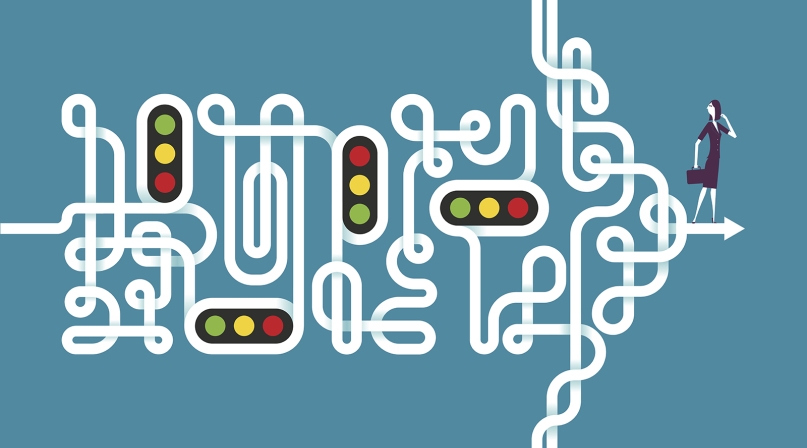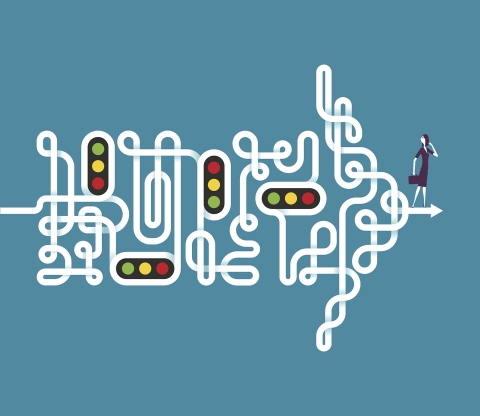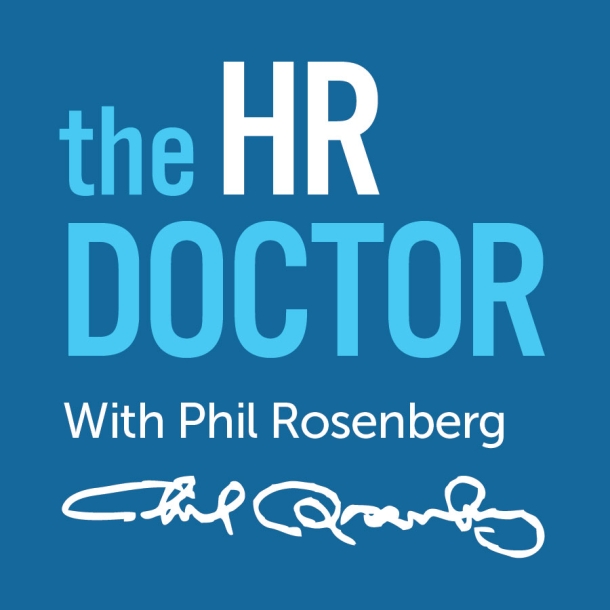Safer Cars – Safer Careers

What would cause a generally logical and competent HR Doctor and his beautiful wife Charlotte to trade in their well-functioning truck and van, purchased only four years earlier, for new vehicles at the same time? Certainly, it was not for the sole purpose of making the Toyota dealer ecstatically happy, although that was likely one of the results. Likewise, it was not because the two vehicles in the Rosenberg fleet were extremely old and on the verge of general breakdowns. Rather, in the years since our truck and van were purchased, an array of safety features have become available which Charlotte and I both agreed should be mandatory in our personal vehicles (not to mention in everyone’s vehicles).
So it was that we drove into the Toyota dealership in the white truck and a white van. Later that day — much later after what we began to regard as a hostage drama in progress — we left in a new white truck and a new white van. This time they were full of all sorts of new safety features. These included blind spot monitors, cruise control systems that adapted to speed changes by the car in front, emergency braking, adaptive high beam headlights to reduce the blinding LED glare we throw into the eyeballs of oncoming cars, rear cross traffic alerts and lane departure warnings.
Of course, these improvements were “options” available only if you spend more money on the upgraded models such as the “limited” model versus a “base” model. I’m still convinced that the word “limited” referred to our credit reports as much as to the vehicles! At some point, probably in the not too distant future, market forces, regulations and common sense will result in these and more safety items being standard.
While I am not that old — at least when measured in geologic time — I remember my mother’s brand-new 1958 Chevy which had seatbelts, but as an option. Interestingly enough, I also remember that shiny Bel-Aire model came with an astounding three-year, 36,000-mile bumper-to-bumper warranty. With dramatic headshaking at the sales manager, I expressed some exaggerated disbelief that our two 2019 model still only carried three-year, 36,0000-mile warranties! That’s progress, I thought.
In the month since we bought these vehicles, I have been laboriously reading through the several hundred pages of owner’s manuals written more by attorneys than by consumers.
During this reading project, an important HR epiphany suddenly came to me. I realized that all of these safety features are just as relevant and just as important in shaping a person’s career success as they are in arriving home safely after avoiding playing bumper cars on the commute to and from home and work.
No reader of the HR Doctor articles should have any doubt about my view that the most dangerous facet of our lives — the number one obstacle to enjoying success, happiness, health and indeed longevity — is hubris or arrogance.
As we move forward in our careers, all of us can be blinded by the glaring lights of possible professional fame or pathways to promotion or retirement to the point where we might lose sight of the importance of moving forward toward specific destinations or goals. If only our careers featured some form of adaptive cruise control and high beam headlight capabilities to recognize dangers ahead and immediately address them to avoid trouble. Blinding arrogance makes us feel that we are more important than we are or that others are less important. That arrogance helps us avoid losing the weight of obesity, not stop smoking, not ever ride a motorcycle without a helmet or ride in a car without wearing a seatbelt.
Our careers head directly for trouble when, without realizing it, we inflict harm on other people or, as is often said metaphorically, “throwing someone else under the bus” lest we ourselves be blamed for a serious mistake at work. This is again a factor of a symptom of the disease of arrogance. How wonderful it is when there is a mechanism in our lives and our careers which warns us that we might be inflicting harm and prevent that from happening in the first place. This doesn’t only apply to cross traffic or lane departure warnings which would otherwise move us away from our basic sense of right and wrong.
In fact, we do have “devices” in our careers that help us maintain a path of doing the right thing and serving others with innovation and humility. A very important one is called “family.” These are people we love and who depend on us to guide them as their role models. We overwhelmingly accept this responsibility to be their “GPS device” to guide them. Knowing and accepting that responsibility helps us focus on doing the right thing for them. That, in turn, reduces arrogance in our behavior and our language.
Another safety device is closer to our workplace. Having a workplace mentor as a role model gives us someone we can look to as an example. Most of the time that person is a positive model for us, consciously taking time to help us grow and develop into an excellent executive or supervisor. In fact, these are often people who do not have an obligation at all to even act as a mentor. These positive role models will be kindhearted enough to see something in me that I didn’t see myself. They may be in a position to offer me a chance, accompanied by advice, tutoring and constructive criticism, to achieve success in a new and perhaps risky assignment.
Then, too, there are negative role models, whose behavior we observe and consciously say to ourselves that we will not behave that way, speak that way, or manage by bullying or intimidation. These are the keepers of arrogance. Our conscious rejection of their examples can keep us focused on our own conduct and prevent us from running our careers off the road. Any seasoned HR professional will have great amounts of experience with such people, often helping them see their impact of their behavior on others and showing them how to straighten their course. Other times, that HR colleague will be a leading force in their departure from the organization.
Not only at work or in the family, a caring mentor can change the course of a child’s life by being a coach, and a source of support whom a child may trust as much, sometimes perhaps more, than a family member.
Another wonderful safety device in our careers is the deliberate adoption of philanthropy as a way of acting and thinking about how to improve your community and yourself. Philanthropy itself can be a very effective treatment for arrogance. In fact, in careers and in life, it is indeed better to give — better to do something to help with the education or safety of kids or senior citizens, for example — than it is to receive. There is absolutely no shortage of opportunities in the world to make a charitable difference. That kind of involvement also exposes a person to wonderful and successful mentors.
In my own personal case, I learned as an only child growing up in a family where mom had polio. I learned early on that how I behaved in helping her made a huge positive difference in her life. At the same time, even while being a small kid with limited resources and few if any formal credentials, I got to work with her in charitable endeavors and meet many caring people. Those memories have shaped my life and stayed with me always.
So it is that “safety devices” in our careers can keep us from being injured in a kind of career “accident” which could have been avoided.

Attachments
Related News

Counties attract talent by stressing public service appeal
Whether they’re up in the mountains or surrounded by millions of potential job candidates, counties face challenges recruiting talent to enter the public sector job market.
Interim county administrators bridge the gap and offer seasoned experience
After long careers in administration, some professionals relish a chance to help counties out for short stints when their Boards are in transition.

Pa. counties consider furloughs, loans as state budget lapse continues
For the third time since 2015, an unresolved state budget dispute that has dragged on for several months has left counties without the revenue that they depend on to provide critical services.
